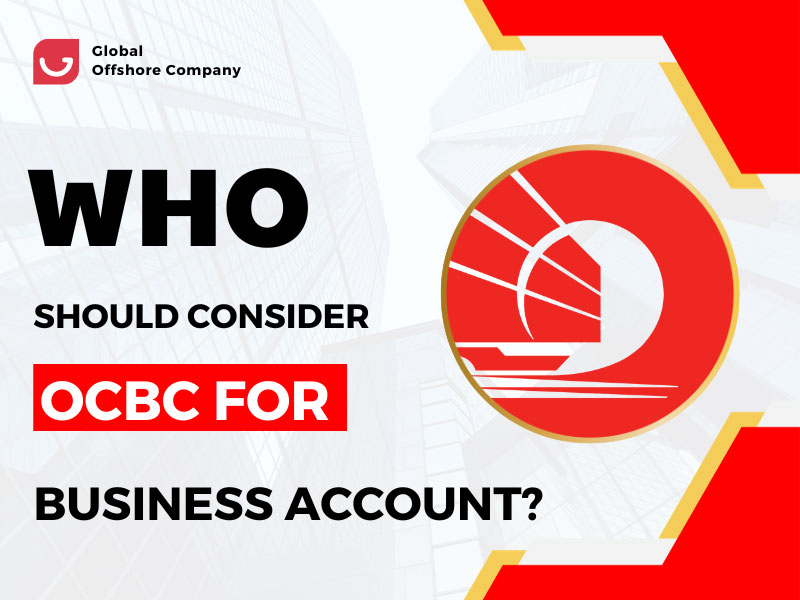How to Set Up an Offshore Bank Account
In the dynamic world of international finance, setting up an offshore bank account has become an appealing option for individuals and businesses seeking financial advantages beyond their domestic borders. If you're intrigued by the idea of tapping into the benefits of offshore banking, you're in the right place. In this comprehensive guide, we'll walk you through the step-by-step process of establishing an offshore bank account with G.O.C, a leading offshore service provider committed to ensuring your financial success.
Step 1: Choose the Right Offshore Bank
The foundation of your offshore banking journey starts with selecting the right offshore bank. This pivotal decision can shape the trajectory of your financial endeavors. Here's what to consider:
Choose a Stable Offshore Jurisdiction: Opt for an offshore jurisdiction known for its reputable economy and political stability. For example, Switzerland's CIM BANQUE is renowned for its economic stability, making it a trusted choice.
Understand Tax Obligations: Research the tax regulations of the chosen jurisdiction to ensure compliance with tax obligations related to account opening and foreign wire transfers. Legal tax optimization should align with your offshore status.
Narrow Down Options: Each offshore jurisdiction offers unique features. Some emphasize low minimum initial deposits, while others focus on exceptional customer service. Narrow down your choices based on your company's strategy and objectives.
Decide on the Best-Suited Bank: From your narrowed list of potential candidates, select an offshore bank that aligns with your financial needs. Examine parameters such as set-up fees, maintenance fees, and minimum initial deposits to make an informed choice.
Step 2: Proceed to Open an Offshore Bank Account
With your chosen offshore bank in mind, it's time to move forward and initiate the process of opening an offshore bank account. Here's what you'll need to do:
Personal Bank Account Requirement:
- Prepare basic documents for identity verification, including name, date of birth, address, citizenship, and occupation.
- Provide a copy of your passport.
- Present residence proof such as a driver’s license, utility bill, or other government-issued identity documents.
- Include personal bank statements and/or a bank reference letter.
- Demonstrate proof of fund sources in the bank.
- Submit additional documents such as KYC forms, CVs of shareholders and directors, business reviews, and sales contracts.
Important Note: Ensure that these documents are notarized to prove their authenticity. Offshore banks typically require certified copies of documents or an "apostille" stamp for verifying foreign document authenticity.
Corporate Account Requirements:
- Submit a certificate of incorporation issued by the regulatory authority.
- Provide a certificate of good standing if the corporation has operated for more than a year.
- Include a bank recommendation letter for each signatory.
- Offer a professional recommendation letter, e.g., from a lawyer, accountant, or business reference.
- Present a legible copy of passports for authorized signatories, beneficial owners, and directors.
- Furnish proof of address, such as a utility bill or credit card statement.
- Include a business plan, providing an overview of the company.

Step 3: Choose the Right Currency for Your Fund
One of the distinct advantages of setting up an offshore bank account is the ability to choose the currency in which you hold your funds. Unlike local bank accounts that restrict you to domestic currency, offshore accounts allow for greater currency diversification. However, consider the following:
- Choosing foreign currency for your offshore account may subject you to foreign tax liability.
- Converting between offshore and domestic currencies may come with conversion costs.
Step 4: Understand Deposits and Withdrawals
Understanding the dynamics of deposits and withdrawals is essential for effective offshore banking:
- Funding Offshore Accounts: Account holders often fund their offshore accounts through international wire transfers. Be mindful of transfer fees associated with different foreign banks.
- Withdrawal Options: Offshore banks offer various withdrawal options, such as ATM or debit cards. Note that some options may incur higher fees.
The Pros and Cons of Offshore Banking
Before you embark on your offshore banking journey, it's crucial to weigh the pros and cons:
Pros:
- Tax Benefits: Offshore accounts can offer favorable tax regimes, reducing your tax burden and retaining more of your profits.
- Asset Protection: Offshore accounts provide transparency, control, and privacy, safeguarding your assets from domestic uncertainties.
- Convenience: Offshore banks often provide practical services, including remote account registration and round-the-clock accessibility.
- Security: Offshore accounts offer high levels of security, protecting your funds from unexpected financial events.
- Privacy: Stringent privacy regulations in many offshore banking jurisdictions ensure the confidentiality of account information.
- Higher Interest Rates: Offshore accounts may offer higher interest rates than domestic accounts.
- Currency Diversification: Offshore accounts allow you to maintain a diverse currency portfolio.
Cons:
- Strict Regulation: Offshore banking can be associated with tax evasion and money laundering, leading tostricter regulations.
- Deposit Requirement: Some offshore banks may have high minimum deposit requirements.
- Unexpected Loss: In case of a financial crisis or bank failure, recovering funds from an offshore account might be challenging.
- Higher Operating Expenditure: Establishing an offshore account can be costly due to legal fees and registration expenses.
In Conclusion
Setting up an offshore bank account is a strategic move that offers numerous advantages for individuals and businesses alike. With the guidance of G.O.C, your leading offshore service provider, the process becomes straightforward and efficient. By following the steps outlined in this guide, you can navigate the complexities of offshore banking and tap into the benefits of tax optimization, asset protection, currency diversification, and more. Don't miss out on the opportunities that offshore banking can bring to your financial landscape. Set up an business offshore bank account with G.O.C today!
*Disclaimer: This article is for informational purposes only and does not constitute legal or financial advice. Consult with professionals before making any financial decisions.*

.png)









